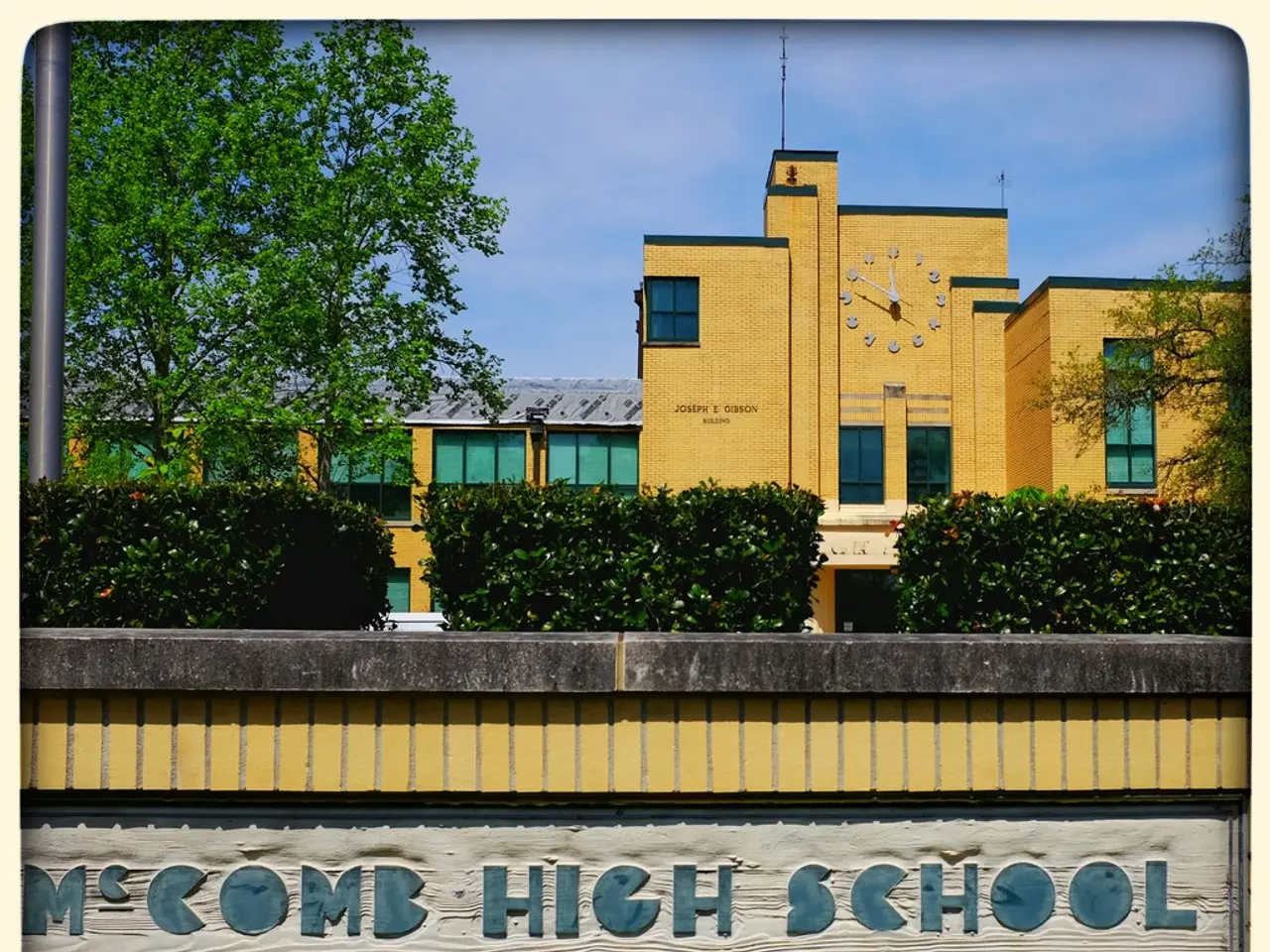Transforming Urban Learning through Green Spaces: Leveraging Community Hubs for Eco-Friendly Education
In an era marked by the climate crisis and rapid urbanization, cities across the globe are increasingly recognising the importance of sustainable urban education. This innovative approach turns modern cities into platforms for civic and environmental learning, making sustainable development a visible, tangible, and real part of everyday life.
By integrating ecology into the cityscape, urban residents can experience the impact of their choices on the environment, such as plastic use, water consumption, and energy efficiency. This new approach to public space fosters social responsibility and supports green transformations in urban environments.
One of the key benefits of urban environmental education is its emphasis on experiential learning. The effectiveness of this method lies in opportunities for observation, experimentation, hands-on action, and real-time interaction with natural phenomena. Learning about the environment in its natural urban setting is emphasised by experts and educators.
Various public spaces, from parks and green squares to playgrounds, bike paths, rooftops, and murals on building walls, serve as educational spaces. For instance, urban community gardens and farms located at schools or in underserved neighbourhoods provide a living classroom where students and community members learn about agriculture, food production, and sustainable practices firsthand.
Universities situated in urban centres also play a significant role in this educational revolution. Sustainability-focused speaker series and forums, like American University's Gamechangers in Sustainability Speaker Series and Founders Forum, connect students with pioneering entrepreneurs integrating environmental and social impact into their business models.
City-led programs involving civic design and community engagement to address environmental challenges, such as the Bloomberg American Sustainable Cities initiative in Raleigh, NC, are another example of this innovative approach. These programs provide residents a sense of safety, belonging, and empowerment while promoting sustainable urban growth.
Youth-led sustainability projects showcased through global or virtual platforms, like the Greening with STI Bootcamp, highlight the role of education in youth empowerment and collective sustainability action. Community-driven social sustainability efforts, such as urban gardening, recycling programs, and renewable energy projects, operate in public urban spaces to reduce environmental harm and foster social responsibility.
Cities that invest in environmental education in public spaces create more inclusive, participatory, and healthy urban environments. Simple actions like planting trees or collecting rainwater can deliver measurable benefits to the urban community. By making sustainable development more accessible and relatable to the general public, these initiatives raise awareness among residents about the environment and foster a sense of social responsibility.
In conclusion, the urban environment provides a tangible and real-life context for understanding and contributing to environmental issues. By leveraging public spaces, cities can engage diverse audiences in learning and action that advance environmental awareness and social responsibility, building resilient, inclusive, and sustainable urban communities.
- Science and environmental-science can be integrated into urban daily life, allowing city dwellers to witness the effect of their choices on the climate, such as adjusting their lifestyle to reduce plastic use, lower water consumption, and improve energy efficiency.
- As central education platforms, parks, green squares, schools, and even community gardens and farms offer opportunities for experiential learning about environmental issues, fostering social responsibility and promoting a shift towards sustainable living.
- Universities, through sustainability-focused conferences and speaker series, bring entrepreneurs and students together to share ideas and cooperate on business projects dedicated to environmental and social development.
- Community-led initiatives, like urban gardening, recycling programs, and renewable energy projects, operate within public urban spaces, teaching residents about reducing environmental impact and the importance of social responsibility in creating more sustainable cities.




